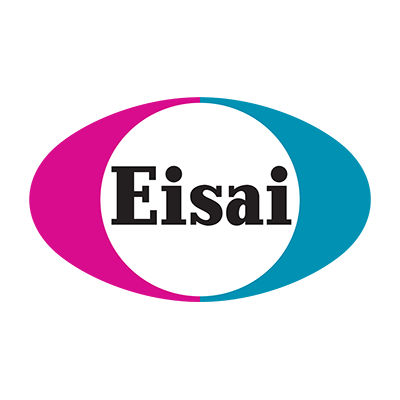EISAI CO

🇯🇵Japan
- Country
- 🇯🇵Japan
- Ownership
- Public
- Established
- 1941-12-06
- Employees
- 11K
- Market Cap
- $12B
- Website
- http://www.eisai.co.jp
TRIALS UPDATE: Our Q3 Roundup of Dementia Clinical Trials News
Recent Alzheimer’s and dementia research highlights include FDA approval of Alpha Cognition’s Zunveyl, failed phase 3 trials, legal issues for Cassava Sciences, and compassionate use of a new drug. CTAD conference data revealed anti-tau drugs' lack of efficacy, while Tiziana’s foralumab received FDA clearance for compassionate use. Eisai’s anti-tau drug E2814 showed potential in reducing biomarkers. Roche’s trontinemab and UCB’s beprenemab faced setbacks, and Athira’s Fosgonimeton failed in Phase 2/3. Gene therapy LX001 showed stabilization in amyloid levels and reduction in tau biomarkers. Symptomatic treatments like Zunveyl and Montelukast showed promise in managing memory symptoms.
Korean Dementia Association: “Leqembi's Side Effects Are Not Significant”
The Korean Dementia Association reassures on Leqembi's safety, noting rare side effects like brain hemorrhage. Phase 3 trial results show Leqembi delayed Alzheimer’s progression by 27%, leading to MFDS approval in Korea. Despite EU and Australia's refusal to approve due to ARIA concerns, Korean data reveals fewer side effects in Asians, with only 6.5% incidence of cerebral edema among Korean participants.
7 Alzheimer's and Parkinson's Programs Discarded in 2024
Despite approvals for Leqembi and Kisunla, attrition in Alzheimer’s and Parkinson’s pipelines persists, with Roche, Johnson & Johnson, Sage Therapeutics, and Otsuka discontinuing programs. Analysts attribute these decisions to clinical trial data and evolving commercial opportunities, noting the Alzheimer’s market is projected to be worth $15.5 billion by 2031, while Parkinson’s drugs are expected to reach $6.63 billion by 2029.
A Round-up of Alzheimer's Drug Trials News From CTAD 2024
CTAD 2024 in Madrid showcased updates on Alzheimer’s clinical research, including Eisai’s E2814, Nilotinib, Roche’s trontinemab, UCB’s beprenemab, Vaccinex’s pepinemab, intranasal insulin and empagliflozin, Cognition Therapeutics’ CT1812, Eli Lilly’s ceperognastat, high-dose DHA, Lexeo Therapeutics’ LX001, nabilone, dronabinol, and CBD, highlighting safety, tolerability, and potential efficacy in various stages of Alzheimer’s.
Novel Drug Improves Depression, Insomnia Symptoms as Add-On Therapy
Seltorexant, a potent, selective orexin-2 receptor antagonist, improved symptoms of major depressive disorder (MDD) and insomnia in a phase III trial. The study drug, when combined with current antidepressant treatment, showed a significant reduction in Montgomery-Åsberg Depression Rating Scale (MADRS) total score compared to placebo. Seltorexant is unique as it targets only OX2 receptors, potentially filling an unmet need for new therapies for MDD and insomnia.
Enhanced Dosing of Donanemab Lowers ARIA Risk, Anti-Tau Agent E2814 Shows
New findings from the phase 3b TRAILBLAZER-ALZ-6 trial showed that an enhanced titration dosing regimen of donanemab led to significant reductions in ARIA-E frequency and severity. Data from the E2814-G000-103 study indicated that E2814, an anti-tau therapeutic antibody, significantly affected early and late tau biomarkers in patients with DIAD. A placebo-controlled phase 2 trial demonstrated that a combination of intranasal insulin and empagliflozin improved cognition and immune/inflammatory biomarkers in patients with MCI or early AD.
Related Clinical Trials:
Eisai Formally Submits BLA for Subcutaneous Autoinjector of Lecanemab
Eisai submitted a BLA for lecanemab-irmb (Leqembi) subcutaneous autoinjector, aiming for weekly maintenance dosing. If approved, it would offer a 15-second administration method for patients with mild cognitive impairment or early-stage Alzheimer disease. The therapy is currently approved in several countries and under review in others, including the EU. The BLA is supported by phase 3 Clarity AD trial data, showing subcutaneous lecanemab produced greater amyloid plaque removal than IV administration.
Eisai Completes Rolling Biologics License Application to FDA for Subcutaneous Maintenance Dosing Option of Leqembi
Eisai and Biogen complete rolling submission to FDA for a subcutaneous maintenance dosing option of Leqembi, an Alzheimer's disease treatment. The BLA, granted Fast Track designation, builds on Clarity AD study data, aiming to enable weekly home or facility-administered SC doses. Results show Leqembi slows cognitive and functional decline by 27% over 18 months. Common adverse events include infusion reactions and amyloid-related imaging abnormalities. The SC formulation is designed to sustain effective drug levels post-plaque clearance, potentially improving convenience and reducing site visits.
Eisai Completes Rolling Submission to US FDA for LEQEMBI® (lecanemab-irmb) Biologics
Eisai and Biogen announce completion of BLA submission to FDA for lecanemab-irmb (LEQEMBI) subcutaneous autoinjector for weekly maintenance dosing in early Alzheimer's disease, granted Fast Track designation. LEQEMBI targets highly toxic protofibrils to sustain clearance of amyloid-beta plaque, potentially more convenient than IV administration.
Eisai, Biogen eye 2025 approval for Leqembi autoinjector
Eisai and Biogen complete US BLA for subcutaneous Leqembi, aiming to replace IV version with once-weekly autoinjector after initial IV course. This could differentiate Leqembi from Eli Lilly's Kisunla and boost uptake. Lilly is developing IV and subcutaneous forms of its follow-up drug remternetug. FDA has fast-track status for subcutaneous Leqembi but hasn't accepted the filing yet. Eisai and Biogen also filed for a monthly IV maintenance dose. Leqembi is approved in several countries but faces re-examination in the EU. Biogen reports $67 million in Q3 sales, with plans to expand subcutaneous use into induction phase by Q1 2026.
© Copyright 2024. All Rights Reserved by MedPath
